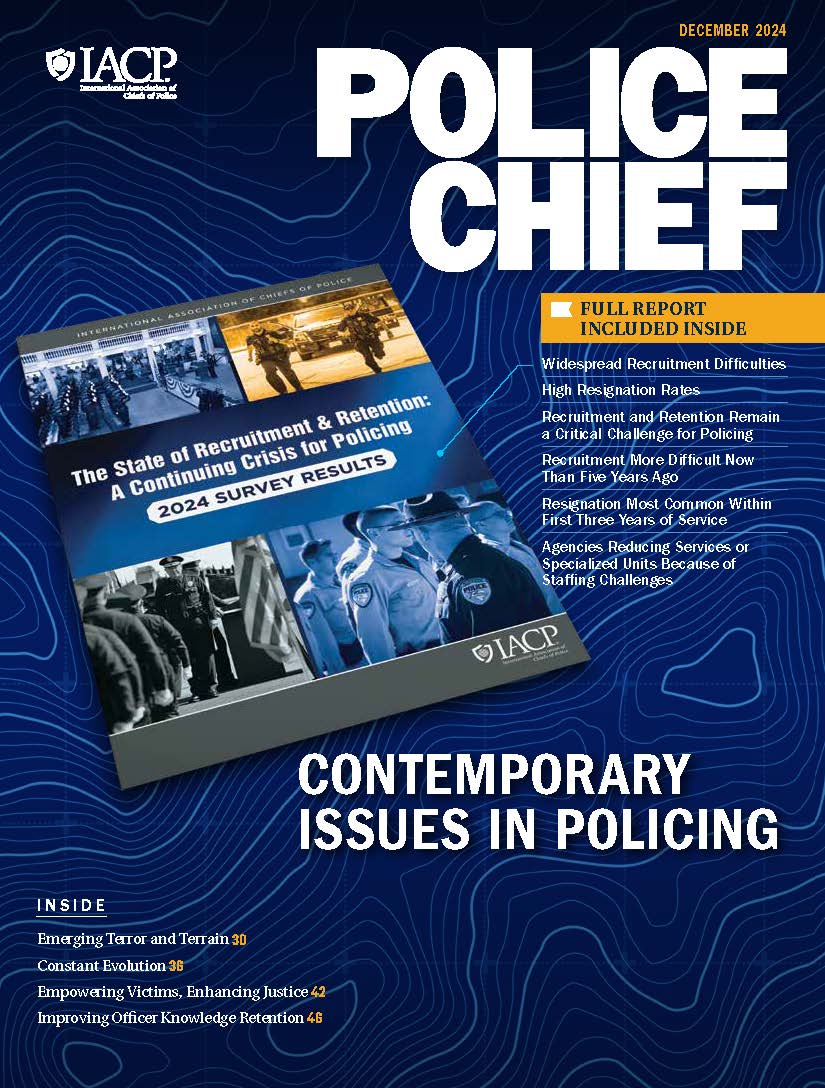The United States faces an adaptive enemy, both at home and abroad, and attacks and plots over the past 15 years demonstrate that the threat to the United States is ongoing. These threats not only emanate from outside U.S. borders, but also from within. This complex threat environment demonstrates the increasingly critical role state and local partners play in supporting the sharing of information.
In response to the information sharing failures that contributed to the devastation of the 9/11 terrorist attacks, the United States Intelligence Community (IC) fundamentally changed the manner in which it identifies and shares information about threats to safety and security. Since 9/11, the IC has made a concerted effort to reach beyond the capabilities of the federal government in order to leverage the unique information and expertise resident within state and local law enforcement. Since the individuals responsible for these threats are able to self-radicalize and do not always travel or communicate with individuals overseas, strong partnerships between the U.S. federal government and state and local partners are more important than even in the efforts to identify and warn about impending plots that could impact national security or U.S. residents. State and local agencies are uniquely positioned to augment federal intelligence and investigative efforts by virtue of their presence in every community, their knowledge of local individuals and groups, and their ability to access and share local criminal intelligence information.
The U.S. Department of Homeland Security’s (DHS) Office of Intelligence and Analysis (I&A) has been on the forefront of these efforts by serving as a primary conduit for sharing threat information with state and local partners. I&A is a member of the IC and is the only IC element statutorily charged with delivering intelligence to state and local partners, while also developing intelligence from these partners for both DHS and the IC. I&A’s mission is to ensure that state and local partners can expeditiously access the capabilities, resources, and expertise necessary to share information and intelligence and serve as full participants in the homeland security enterprise. Additionally, I&A has closely collaborated with its federal partners—specifically the Federal Bureau of Investigation (FBI) and the Office of the Director of National Intelligence (ODNI)—to support the maturation of the National Network of Fusion Centers and the execution the Nationwide Suspicious Activity Reporting (SAR) Initiative (NSI). Both of these national-level efforts reflect a decentralized and collaborative approach to addressing the current and evolving threat environment.
In support of this mission, I&A closely collaborates with the FBI to facilitate national-level communication and outreach efforts with state and local partners and with law enforcement associations and councils, such as the Criminal Intelligence Coordinating Council (CICC). This outreach includes the provision of threat information during and after domestic and international incidents or threats that could have an impact on the United States. The threat information is designed to provide awareness on what is known about an incident or threat, such as timelines, targets, tactics used, implications, actions being taken by federal partners, and potential protective measures that can be implemented locally.
The Fellows Program
In addition to sharing federal threat information, I&A has aggressively incorporated state and local expertise directly into the IC. One of the primary vehicles to do this has been the I&A’s Fellows Program. The Fellows Program provides a unique opportunity for state and local partners to collaborate directly with DHS and the IC to ensure that threat information is most effectively shared among and across all levels of government. Fellows sit side-by-side and collaborate with their federal counterparts through participation in a variety of intelligence functions, including, but not limited to conducting joint analysis, production and dissemination of intelligence products, collection and reporting, and watchlisting efforts. These fellows gain practical experience and an understanding of the relationship between law enforcement and IC as they contribute to the following efforts:
• Represent and advocate for state and local information requirements to DHS and the IC.
• Identify DHS and IC information that is of interest to state and local partners.
• Educate DHS and IC partners on state and local mission requirements and provide awareness and understanding of the state and local role in counterterrorism efforts.
The Fellows Program provides three different opportunities, tailored to the experiences, expertise, and interests of the fellows.
DHS Office of Intelligence and Analysis (I&A): Fellows work alongside I&A personnel to facilitate collaboration among DHS I&A, other DHS components, and state and local partners in order to promote an understanding of threats to the United States, collect intelligence pertinent to homeland security, and share information that can inform operational and strategic actions. Fellows identify a specialized area to focus on during their fellowship, such as border security, cybersecurity, or homegrown violent extremism. Previous I&A fellows have had the opportunity be embedded in I&A analytic divisions focused on producing analytic products on topics ranging from homegrown violent extremists (HVEs) to border security. Fellows have also supported the identification and nomination of individuals to the watchlist and supported programs that facilitate the distribution of finished intelligence products to state and local law enforcement partners.
Joint Counterterrorism Assessment Team (JCAT): JCAT is a joint DHS, FBI, and National Counterterrorism Center (NCTC) program, hosted at NCTC. Fellows work alongside analysts from NCTC, DHS, and the FBI to research, produce, and disseminate counterterrorism intelligence products. They provide a state and local perspective to federally coordinated finished counterterrorism intelligence products and ensure that terrorism-related information intended for state and local entities is presented in a usable format that is, to the extent possible, unclassified to facilitate further dissemination. Previous JCAT fellows have had the opportunity to author several products on topics ranging from the sale of looted antiquities from Iraq and Syria to fund ISIS, to domestic rules and regulations concerning the use of unmanned aerial systems (UAS), to the targeting of first responders by violent extremists, and the vulnerability of public safety personnel to targeting in the cyber environment.
Terrorist Screening Center (TSC): The TSC leads the U.S. government’s terrorist watchlisting and screening efforts by maintaining the consolidated Terrorist Watchlist—a database for identifying information about those known or reasonably suspected of being involved in terrorist activity. Fellows help enhance partnerships between the TSC and state and local partners to improve encounter notification reporting and to facilitate TSC collaboration with state and local partners. Fellows review, support, and provide recommendations on the encounter reporting process between state and local partners and the TSC, support efforts to enhance watchlisting and screening database records, and facilitate collaboration with the TSC to develop encounter analyses and assessments. Previous TSC fellows have had the opportunity to utilize their law enforcement expertise to develop and strengthen relationships among the TSC, state and local law enforcement, and fusion centers across the United States with a specific focus on enhancing and streamlining the process through which the TSC initiates requests for information (RFI) from local jurisdictions.
These opportunities provide a unique experience for state and local partners to collaborate directly with DHS and IC, while also ensuring state and local law enforcement are full partners with the federal government in addressing threats to the United States. For information on the Fellows Program or application process please contact DHS at IA.Fellows@hq.dhs.gov.



